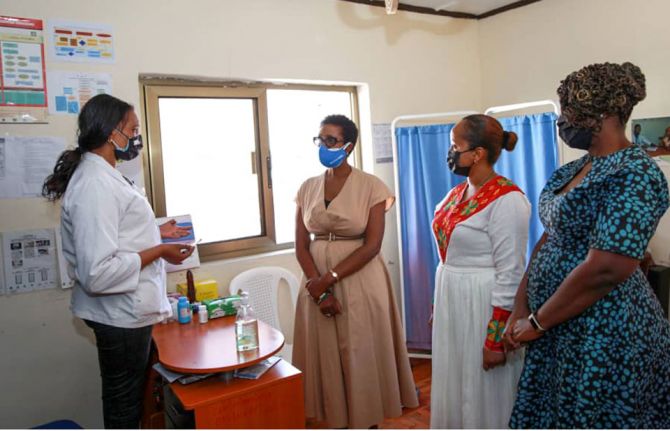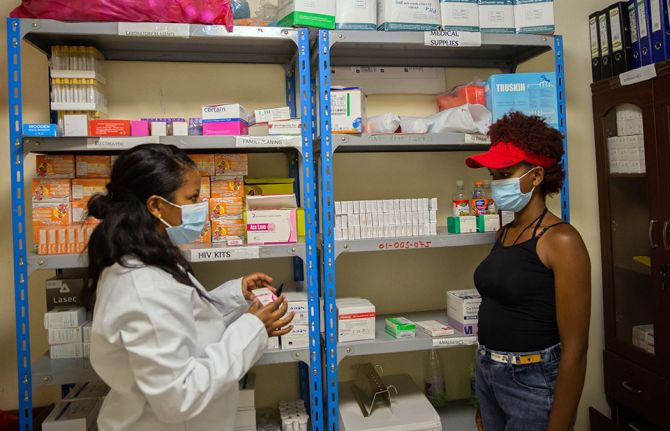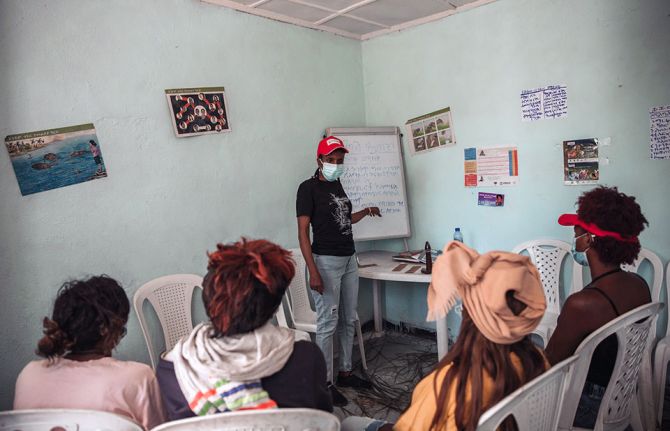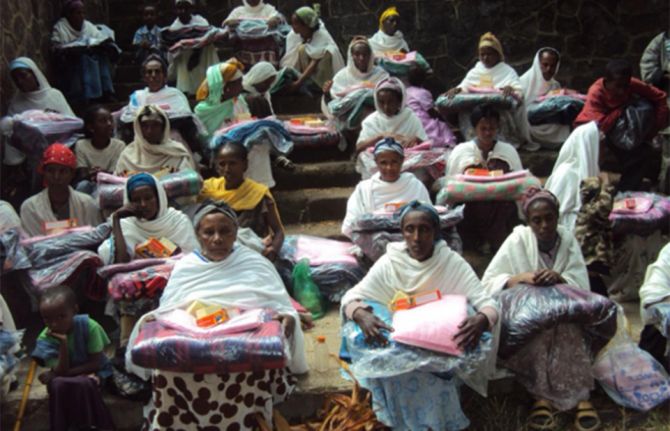



Feature Story
Drop-in centre provides a lifeline for sex workers in Ethiopia
24 March 2021
24 March 2021 24 March 2021Located in Bole sub-city, the Bole drop-in centre is one of 12 such centres established in Addis Ababa, Ethiopia, to provide community-based comprehensive HIV services. It provides critical services and support for clients, including female sex workers, and has been a lifeline during the COVID-19 outbreak.
The centre offers a full range of integrated clinical services, including HIV testing and self-testing kits, the provision of oral pre-exposure prophylaxis (PrEP), antiretroviral therapy, the diagnosis and treatment of sexually transmitted infections, screening and referral for the treatment of tuberculosis, cervical cancer screening and treatment, and programmes to prevent and respond to gender-based violence, including access to post-exposure prophylaxis.
The drop-in centre is strategically located in one of the city’s hotspots to cater primarily for female sex workers and their children, young women and adolescent girls who are out of school, and men at higher risk of HIV infection.
It also offers consultations by mobile phone, with 31 cyber-educators trained to provide 15-minute counselling sessions with an accent on the prevention of both HIV and COVID-19. The programme has proved to be invaluable during the COVID-19 pandemic.
“I am truly inspired by the work being carried out at the Bole drop-in centre,” said UNAIDS Executive Director, Winnie Byanyima, when she met staff and clients during her recent visit to Ethiopia. “It is a great example of integrated community-led service delivery and is exactly the kind of programme that is key to ending AIDS as a public health threat by 2030.”
The centre is primarily funded by the United States President’s Emergency Plan for AIDS Relief, through the United States Agency for International Development, while UNAIDS has provided catalytic funding for the cyber-education programme, the promotion of PrEP among vulnerable groups of people and mental health counselling. This support will help to generate the uptake and continuation of needed services during the COVID-19 pandemic. Partners include Population Services International and a local nongovernmental organization called Integrated Service on Health and Development Organization.
As the measures taken to contain COVID-19 continue to bite, the Bole sub-city drop-in centre will remain a critical service for female sex workers and their families.
“During the COVID-19 lockdown, many sex workers found it difficult to work and the drop-in centre has been their only source of food,” said Sister Desta Franso, an antiretroviral provider and counsellor at the clinic.
Up to 20 female sex workers use the centre every day and around 140 women are receiving HIV medication. Treatment retention at around 94% is extremely high.
“I am so happy to be able to come here to get free medication and condoms,” says Mekdes Matiyos, a regular user of the clinic. “I can also just come to take a shower and rest whenever I need to, and I don’t have to pay.”



